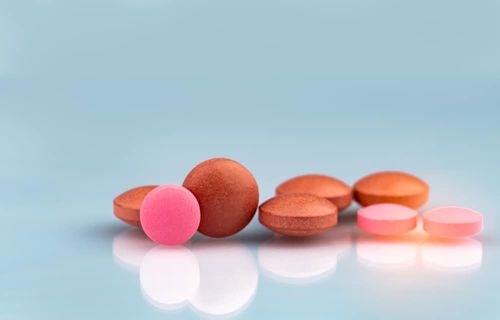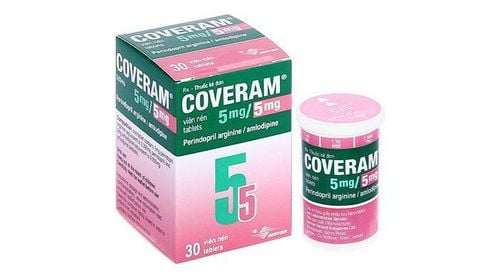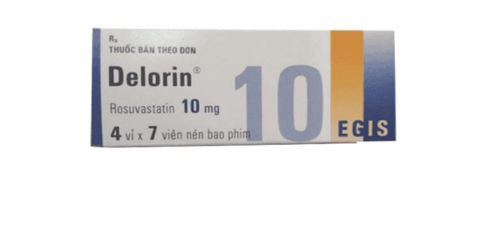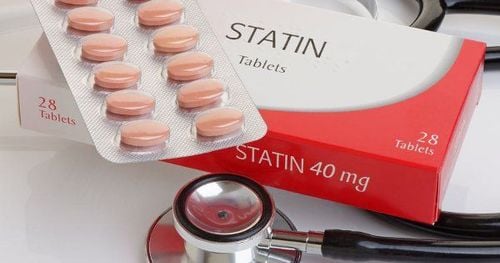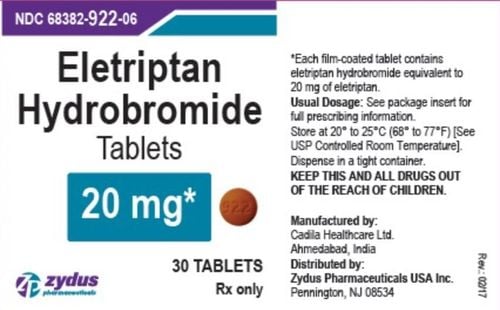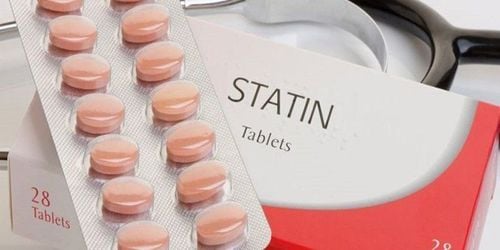This is an automatically translated article.
Japet medicine has the main ingredients Ezetimibe 10mg and Atorvastatin - in the form of Atorvastatin calcium trihydrate - 20mg. Drugs used to treat blood-related diseases such as coronary artery disease, hypercholesterolemia.
1. What is Japet?
Japet medicine contains the active ingredients Ezetimibe and Atorvastatin, which have the effect of lowering the concentration of cholesterol in the blood plasma. The doctor will appoint the patient to use the drug for the following cases:
People with coronary artery disease: For patients with both coronary artery disease and hypercholesterolemia when using Japet. The drug is used to reduce the risk of coronary death and myocardial infarction, reduce the risk of the need for myocardial revascularization, slow the process of coronary atherosclerosis, and reduce the damage caused by coronary artery disease. This disease affects the body. For patients with hypercholesterolemia: Using Japet has the effect of reducing low-molecular-weight cholesterol levels and increasing high-molecular-weight cholesterol.
2. Dosage and how to use Japet
2.1. How to use Japet medicine produced in the form of film-coated tablets is used orally, when using the patient, it is necessary to establish a cholesterol-lowering diet during the period of taking the drug.
The dosage of the drug is different for each disease, the doctor will prescribe the drug dose based on the plasma lipid concentration.
With the first dose, the patient should take the lowest dose of the drug, then it can be adjusted according to the needs, disease condition and the body's response. During treatment, it is necessary to monitor drug reactions, especially adverse reactions to the muscle system.
2.2. Dosage The usual dose is 1-4 tablets/day consisting of 20mg Atorvastatin and 100mg Ezetimibe. The first dose of the patient should be taken with the lowest dose of 1 tablet / day. After 2 weeks, the dose can be increased depending on the plasma lipid concentration. For patients with mild hepatic impairment, no dosage adjustment is required. For patients with renal impairment: No dosage adjustment is required if the condition is mild and moderate. For severe renal impairment, this drug can be used if the patient's body can tolerate the active ingredient atorvastatin at a dose of 5mg or higher. For patients taking cyclosporin: Only use the drug when the body can tolerate atorvastatin with a dose of 5mg or more, but the dose should be used only 1/2 tablet / day. For patients taking amiodarone or verapamil, do not take more than 1 tablet per day.
3. Japet drug interactions
When using Japet with some other drugs can cause unwanted side effects, specifically:
Co-administration with Amiodarone: May increase the risk of causing rhabdomyolysis. Therefore, in case it is necessary to use Japet with Amiodarone, patients should not use more than 20 mg of atorvastatin/day. Concomitant use with inhibitors of CYP3A4 enzymes: Concomitant use of Japet with these drugs may cause reactions that increase plasma concentrations of atorvastatin, increasing the risk of myopathy and myopathy. Coumarin derivatives: Japet drugs used together with Coumarin group of drugs will increase the effect of anticoagulants, with patients taking coumarin anticoagulants should determine prothrombin time (Prothrombin is a test to help detect abnormalities). usually coagulates in the plasma phase) before and during drug use. Patients need to be careful when combining Japet with immunosuppressive drugs and with niacin. Concomitant use with antacids: Co-administration with antacids containing aluminum hydroxide and magnesium will reduce plasma concentrations of atorvastatin by approximately 35%. When Japet is co-administered with Colestipol: Plasma concentrations of atorvastatin will be reduced by approximately 25%. When Japet is combined with Digoxin: If only 10 mg of atorvastatin is used, the steady-state digoxin plasma concentrations are not affected, however, if used at a dose of 80 mg of atorvastatin/day, an increase in digoxin concentrations will be observed. Digoxin concentration increased to about 20%. Co-administration of Japet with Protease Inhibitors: Increases plasma concentrations of atorvastatin.
4. Japet drug side effects
Japet drugs are considered quite safe, but still cause some side effects.
Some common side effects such as:
Digestive: abdominal pain, nausea, constipation, flatulence, diarrhea, the rate of this side effect is 5%. Effects on the central nervous system: Dizziness, insomnia, weakness, headache. Neuromuscular and skeletal effects: Arthralgia and myalgia. Effects on the Liver: According to the research results, the liver function will increase more than 3 times compared to normal but it will not cause any serious symptoms and will return to normal when the drug is stopped. Uncommon reactions:
Respiratory: sinusitis, pharyngitis, rhinitis, cough Nervous, muscle and bone: rhabdomyolysis, myositis, secondary acute renal failure Skin: Rash
5. Use Japet with caution
Because the drug Japet belongs to the statin group, it is likely to cause adverse reactions with the muscle system such as muscle atrophy, myositis, especially in elderly patients. Therefore, it is necessary to regularly monitor the health status as well as possible reactions during the use of the drug. Creatinine kinase levels should be checked in the following patients:
Patients or relatives of patients with a history of myopathy Alcoholics patients with renal impairment Patients with a history of muscle toxicity when taking statins or fibrates Above This is important information about Japet but is not a substitute for your doctor's advice. Therefore, users should strictly follow the advice and indications prescribed in the prescription to achieve the highest treatment effect.
Please dial HOTLINE for more information or register for an appointment HERE. Download MyVinmec app to make appointments faster and to manage your bookings easily.




